7 Best E-Commerce Customer Support Tools in 2026

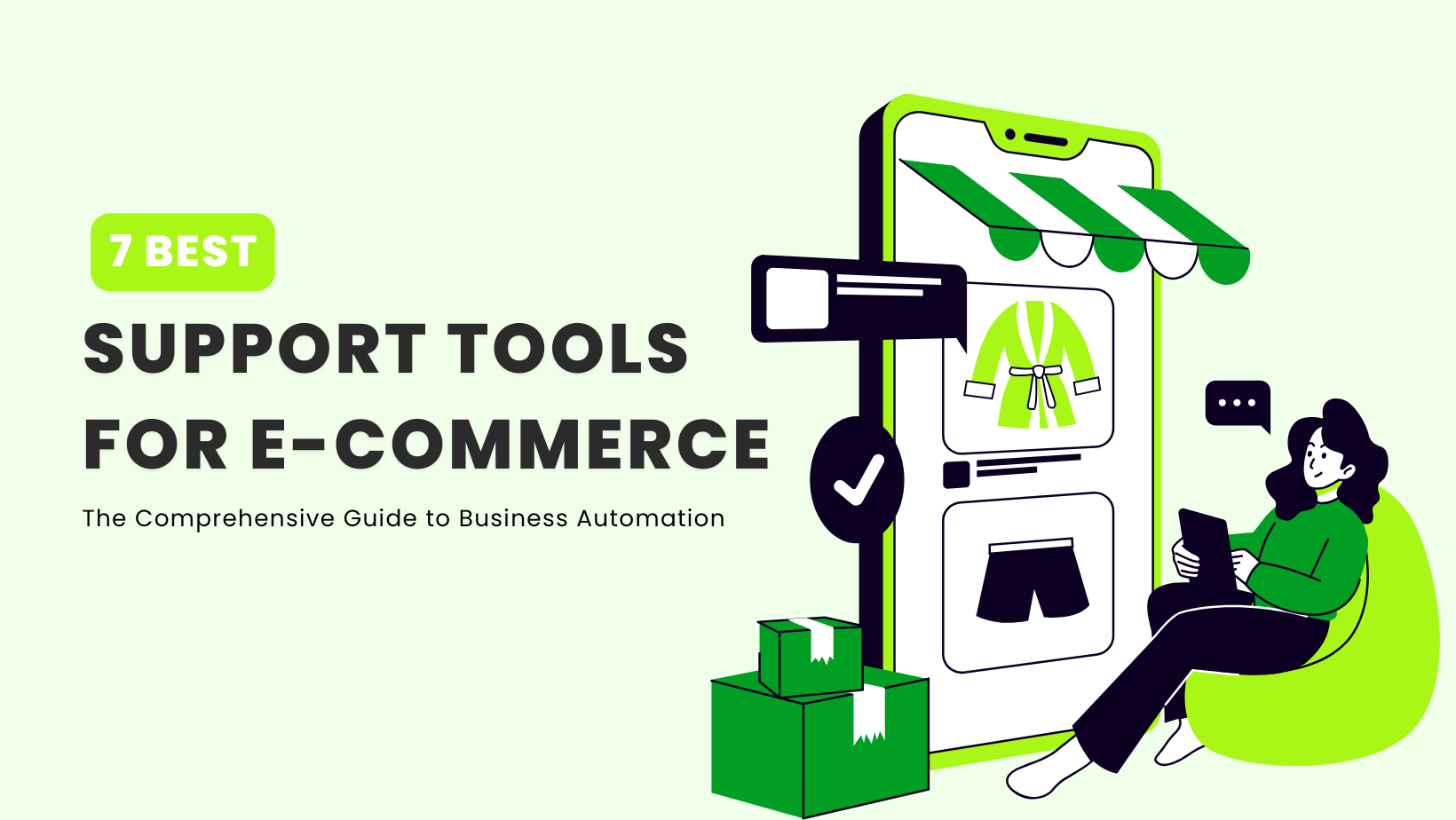
In 2026, ecommerce support is won with instant answers, automation, and real-time order actions. YourGPT leads for AI-first, omnichannel support with no-code setup and custom data training; Zendesk fits enterprise hubs; Freshdesk suits SMBs; LiveChat boosts conversions; Gorgias excels for Shopify and WooCommerce workflows; HelpCrunch blends chat, email, and a knowledge base; Olark keeps live chat simple. Choose by growth stage, native integrations, and how much automation your team needs.
Great customer experiences keep shoppers returning. In ecommerce, a friendly chat, a quick answer, or a smooth return can turn a one-time buyer into a loyal customer. With the advancement of artificial intelligence, online businesses today can build relationships at scale through modern customer support tools that combine speed with personalisation.
Brands today see customer support as more than just problem-solving. It is a chance to build meaningful connections, resolve issues quickly, and strengthen customer trust. With the right tools, routine questions get answered instantly, and teams gain more time to focus on high-value conversations that matter most.
In this blog, we share the 7 best customer support tools for ecommerce in 2026. Each one helps businesses deliver faster service, create smooth shopping experiences, and foster the kind of loyalty that drives long-term growth.
Before diving into details, here is what each tool does best:
| Platform name | Best for |
|---|---|
| YourGPT | Automating ecommerce support and sales conversations with AI, plus handling common workflows such as order questions, returns, and lead capture |
| Zendesk | Enterprise support teams that need advanced ticketing, multichannel routing, and reporting for high-volume ecommerce operations |
| Freshdesk | Small to mid-sized ecommerce businesses that want AI help, ticketing, and simple workflow automation without heavy setup |
| LiveChat | Real-time sales and support chat on storefront pages, with proactive messaging to reduce drop-offs and improve conversions |
| Gorgias | Shopify, WooCommerce, and Magento stores that want support tied directly to orders, refunds, and revenue-driven workflows |
| HelpCrunch | Ecommerce teams that want live chat plus email automation and a knowledge base to reduce repetitive tickets with self-service |
| Olark | Smaller support teams that want a lightweight live chat tool with visitor insights and quick setup for everyday questions |
E-commerce customer support tools are software platforms that help online stores manage customer queries across email, live chat, social media, and phone from a single interface.
These tools simplify support operations by automating repetitive questions such as order tracking or return requests, integrating with e-commerce platforms like Shopify and WooCommerce to access real-time order data, and using AI to provide always available support to customers.
E-commerce support tools include features specifically for online retail:
Customer service in e-commerce is very different from SaaS or B2B support. Online stores deal with higher volumes, faster response expectations, and emotionally charged interactions that directly affect sales and loyalty.
Most traditional helpdesk tools were built for companies handling software bugs. E-commerce needs tools designed for refunds, delivery updates, and return requests.
E-commerce teams manage far more tickets than similar-sized SaaS companies. Most of them are simple, repeated questions:
These make up 60–70% of all support tickets. Without automation, teams waste hours repeating answers instead of solving unique issues. A system that cannot handle this automatically keeps your agents stuck in low-value tasks.
Online stores sell globally. A customer in Tokyo has questions at 3 AM your time. Someone in London checks out during your lunch break. Support needs to work 24/7 across with multiple languages, or you miss sales to competitors who answer faster.
Generic helpdesks lack multi-language support and timezone management built in. You either hire a global team (expensive) or accept that half your customers get slow service (lost sales).
Retail support involves real money and expectations. When a customer receives the wrong item or a delayed order, it feels personal. They want empathy and quick resolution. 68% of shoppers stop buying after one bad experience.
Each interaction directly affects retention and revenue. Agents need full context and tools that help them respond quickly and accurately to prevent negative reviews and lost customers.
The return experience matters as much as the purchase. Smooth returns build trust. Complicated processes destroy customer lifetime value. Amazon trained everyone to expect easy returns, and now every store competes against that standard.
Your support tool needs to make returns simple for both customers and agents, with clear workflows for processing refunds, exchanges, and return shipping.
E-commerce support requires instant access to:
Agents need to check order status, issue refunds, edit addresses, and track packages without leaving the support interface. Generic helpdesks treat these as nice-to-have integrations. For e-commerce, they are required.
Customers discover products on Instagram, ask questions on WhatsApp, complain via email, and use live chat to track orders. They expect agents to have full context regardless of channel.
Managing five disconnected inboxes creates gaps where messages get lost. A good e-commerce support tool unifies all channels so nothing falls through cracks.
Good e-commerce chatbots connect to inventory systems, access real-time order data, handle product questions, and deflect repetitive inquiries so agents focus on problems that actually need human judgment.
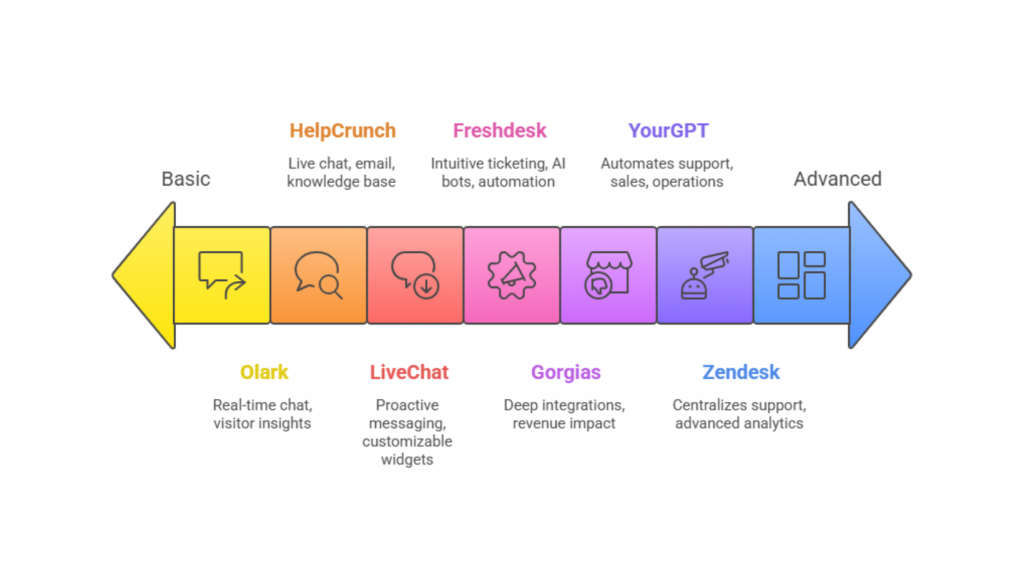
Customer expectations in ecommerce have shifted to instant, personalized, and always-available support. These platforms help businesses reduce cart abandonment, improve loyalty, and scale support effectively.
Choosing the right support platform can transform customer experience and directly impact sales. Below are the top tools that help ecommerce businesses deliver faster, smarter, and more personalized support in 2026.

YourGPT is an AI-first chatbot platform designed to support customer service, sales, and ecommerce operations. It offers a no-code setup and strong automation features that simplify adoption for online stores while also providing the scalability needed by larger retailers.
With its focus on ease of use and advanced AI, YourGPT helps ecommerce businesses handle order queries, reduce cart abandonment, and manage post-purchase support, also improving sales and streamlining internal workflows.

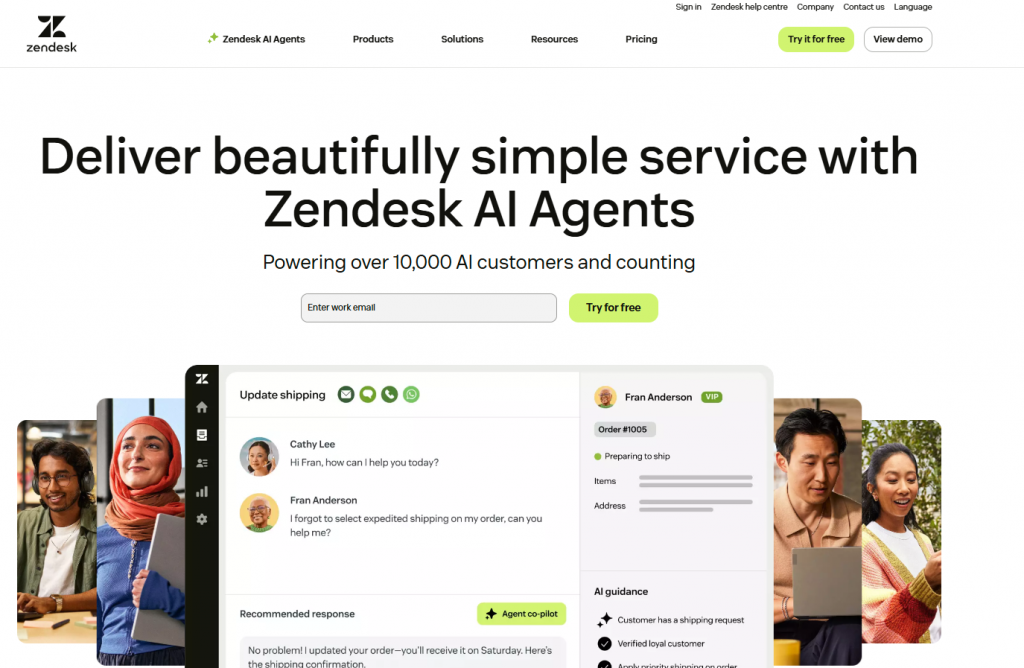
Zendesk is a long-standing leader in enterprise-grade support solutions. It consolidates communication from multiple channels into a central hub.


Freshdesk is built to balance ease of use, affordability, and powerful automation, making it perfect for growing ecommerce businesses.

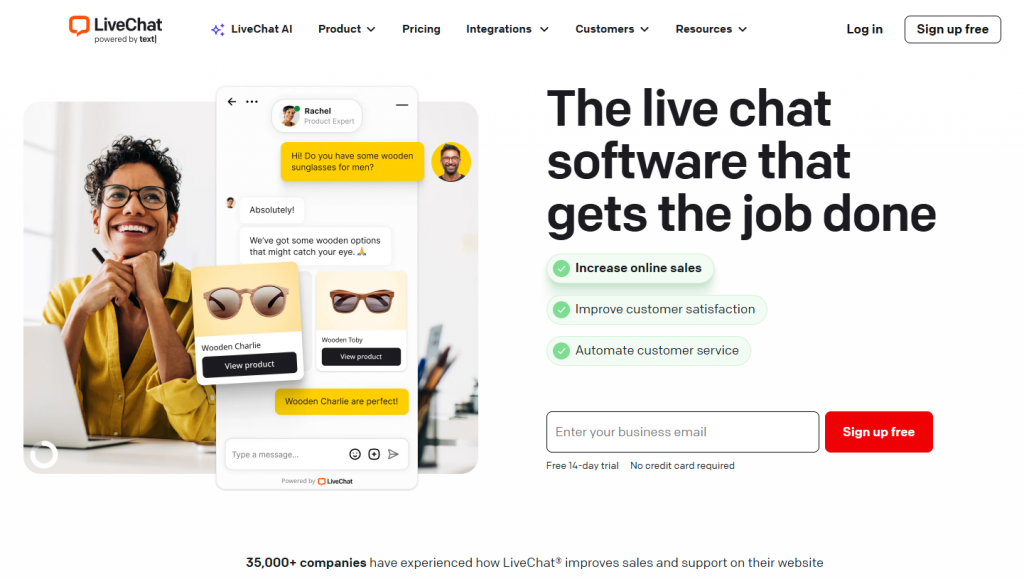
LiveChat is built around real-time communication to improve conversions and reduce bounce rates.


Gorgias is purpose-built for ecommerce and integrates directly with platforms like Shopify and Magento, allowing agents to resolve issues without leaving the dashboard.

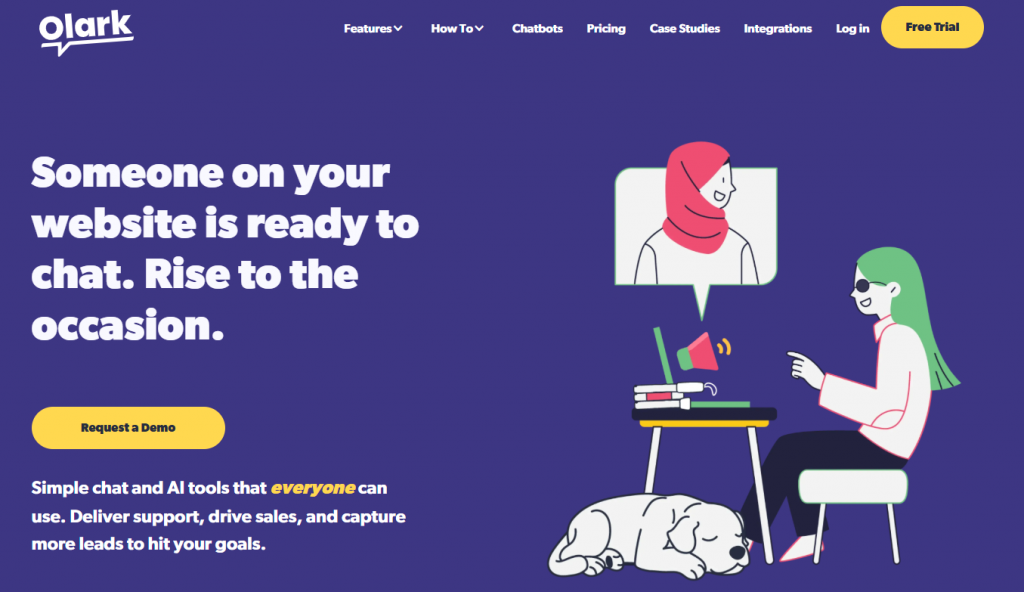
Olark is a simple but effective live chat tool that prioritizes real-time support without complexity.

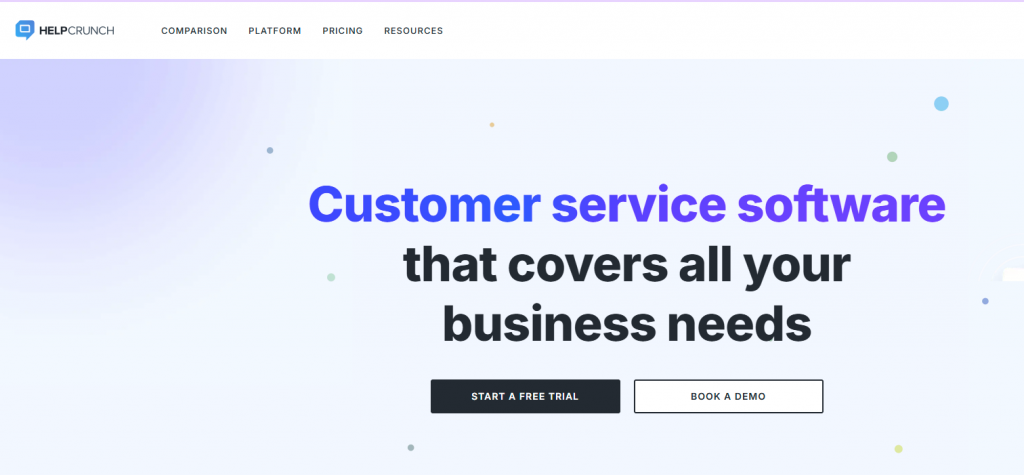
HelpCrunch blends live support with email automation and self-service resources, making it versatile for ecommerce teams.

Here’s a quick overview before we dive into each tool:
| Tool | Primary capability | Customizable | Omnichannel | AI involvement | Can execute actions |
|---|---|---|---|---|---|
| YourGPT | AI agents that answer queries and perform workflows such as order checks, lead capture, and system updates | Yes (no-code + advanced logic) | Yes | Native AI agents | Yes (API & workflow based) |
| Zendesk | Ticket management, routing, and reporting for customer support teams | Yes | Yes | AI assistance | Limited (via integrations) |
| Freshdesk | Ticketing and automation for handling routine support conversations | Yes | Yes | AI bots | Partial (rule-based) |
| LiveChat | Real-time chat focused on conversations and sales support | Yes | Partial | Optional add-ons | No |
| Gorgias | Ecommerce support tied to orders, refunds, and revenue attribution | Yes | Yes | AI automation | Yes (store actions) |
| HelpCrunch | Chat, email automation, and self-service content management | Yes | Yes | Basic AI | No |
| Olark | Lightweight live chat for direct customer conversations | Limited | No | No | No |
Ecommerce businesses compete on experience as much as on price or product quality. Customer support tools directly influence whether shoppers complete a purchase, return for repeat orders, or leave for a competitor. Here are the most important benefits backed by data and business outcomes:
By combining instant responses, automation, and actionable insights, customer support platforms transform service from a cost center into a driver of sales, loyalty, and long-term growth.
The wrong support tool can slow down operations, frustrate customers, and drain your budget. To make the right choice, be mindful of these common mistakes:
The best support tool depends on how your store operates and what you want to achieve. Instead of chasing the most popular brand, match the tool to your stage of growth and customer needs.
This framework helps businesses avoid a one size fits all approach. The right ecommerce customer support tool is the one that matches your growth stage, customer promise, and internal capacity.
They are software platforms that help online stores answer customer questions. These tools bring together chat, email, social media, and phone support into one place. Most also include chatbots, ticketing systems, and reports to make service faster and more organized.
The best choice depends on your needs. YourGPT is strong for AI-first support across many channels. Zendesk works well for large enterprises. Freshdesk is a good fit for small and mid-sized businesses. Gorgias is built for Shopify and WooCommerce stores. LiveChat helps stores that want real-time customer engagement.
Online shoppers expect quick answers. Support tools help reduce cart abandonment, keep customers loyal, and save time by automating repetitive questions. They allow stores to provide better service without hiring large teams.
Look for multichannel support so you can manage chats, emails, and social messages in one place. AI chatbots and automation save time. Ticket management keeps issues organized. Reporting shows how your support team is performing.
Think about your business size and goals. Small stores should look for affordable tools with automation. Growing stores need ticketing and analytics. Enterprises need scalable platforms that connect across many channels.
Yes. Live chat and AI chatbots give instant answers to checkout questions. Proactive chat can also help customers who are unsure, which encourages them to finish the purchase.
Avoid paying for features you will not use. Do not choose tools that lack integration with platforms like Shopify or WooCommerce. Make sure the tool can scale as your business grows. Always check security and ease of use.
Yes. They can answer common questions such as order status, return policies, or product details. They work all day and night. If the question is complex, the chatbot can transfer the customer to a human agent.
They make it easier for customers to get help quickly. Fast and personalized responses build trust. When shoppers feel supported, they are more likely to come back and buy again.
Yes. Tools like Gorgias, YourGPT, and Zendesk connect directly to Shopify and WooCommerce. This lets agents view orders, process refunds, and update customer information without switching platforms.
Customer support is now a core part of ecommerce growth. It drives conversions, repeat purchases, and overall brand trust. Businesses need tools that combine speed, automation, and personalisation to keep shoppers engaged across every channel.
YourGPT, Zendesk, and Freshdesk are among the most recognised ecommerce customer support tools. Each serves different business needs, but the goal is the same: faster resolutions, reduced cart abandonment, and customer experiences that encourage loyalty.
The best ecommerce support solution is the one that fits your stage of growth, integrates smoothly with your systems, and helps your team deliver consistent service at scale. Choosing wisely ensures support becomes not just a cost centre but a driver of long-term revenue and retention.
Deliver faster responses, reduce cart abandonment, and build customer loyalty with YourGPT and other leading ecommerce support platforms for 2026.
7-day free access • No credit card required • Works with Shopify and WooCommerce
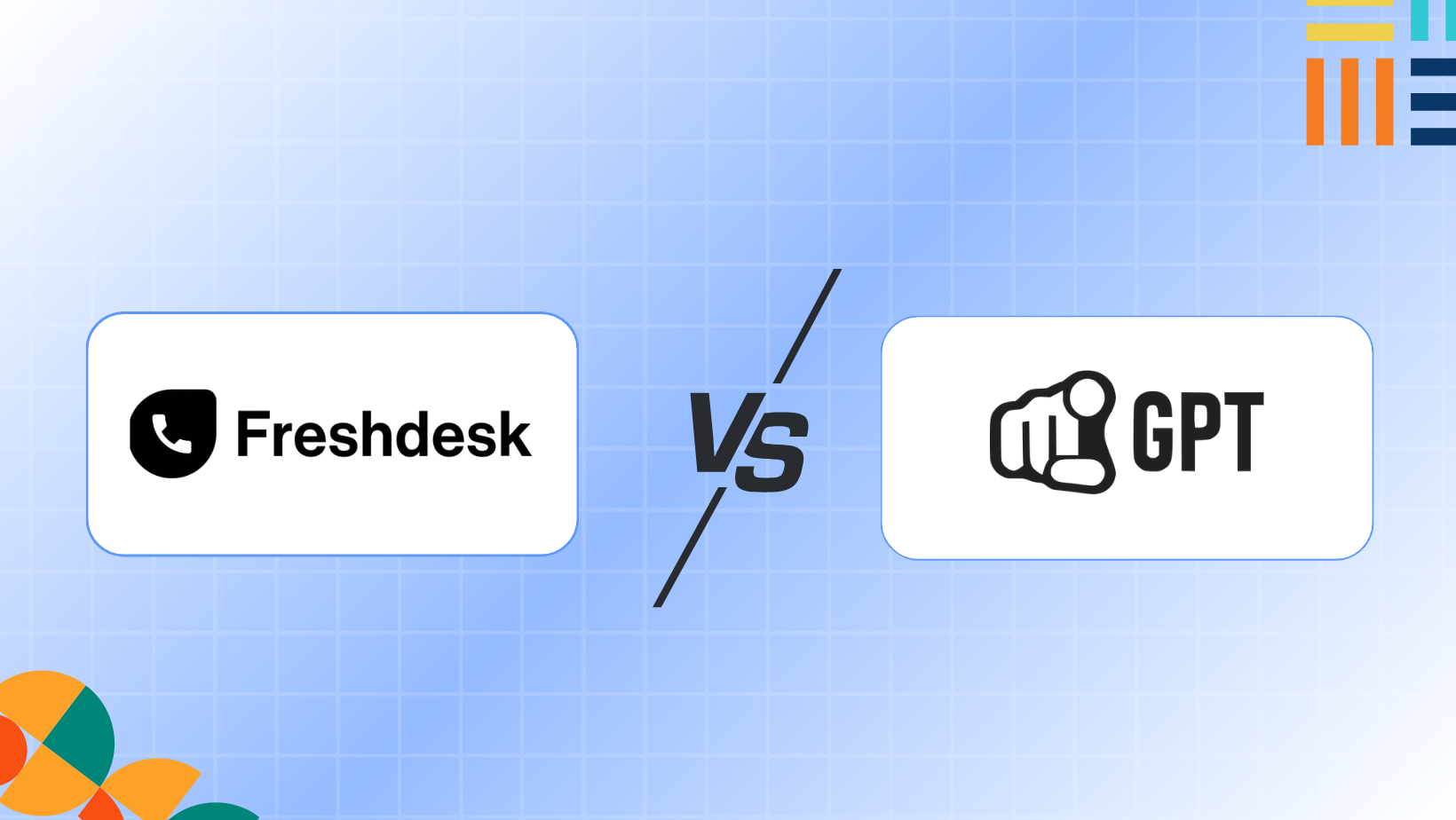
TL;DR: The Core Difference YourGPT Built around AI agents that handle conversations, run workflows, and resolve issues on their own across channels. The goal is to reduce incoming support volume by solving problems before they reach a human. Freshdesk Built around structured ticketing. It focuses on organizing queues, managing SLAs, and tracking agent performance. Humans […]


TLDR Zendesk works well for ticket-based support, but it can feel limiting as teams rely more on automation and multi-channel conversations. This guide compares 7 practical Zendesk alternatives that reduce manual handling and let AI manage common requests across chat and messaging tools Zendesk is one of the popular customer support platform has been around […]

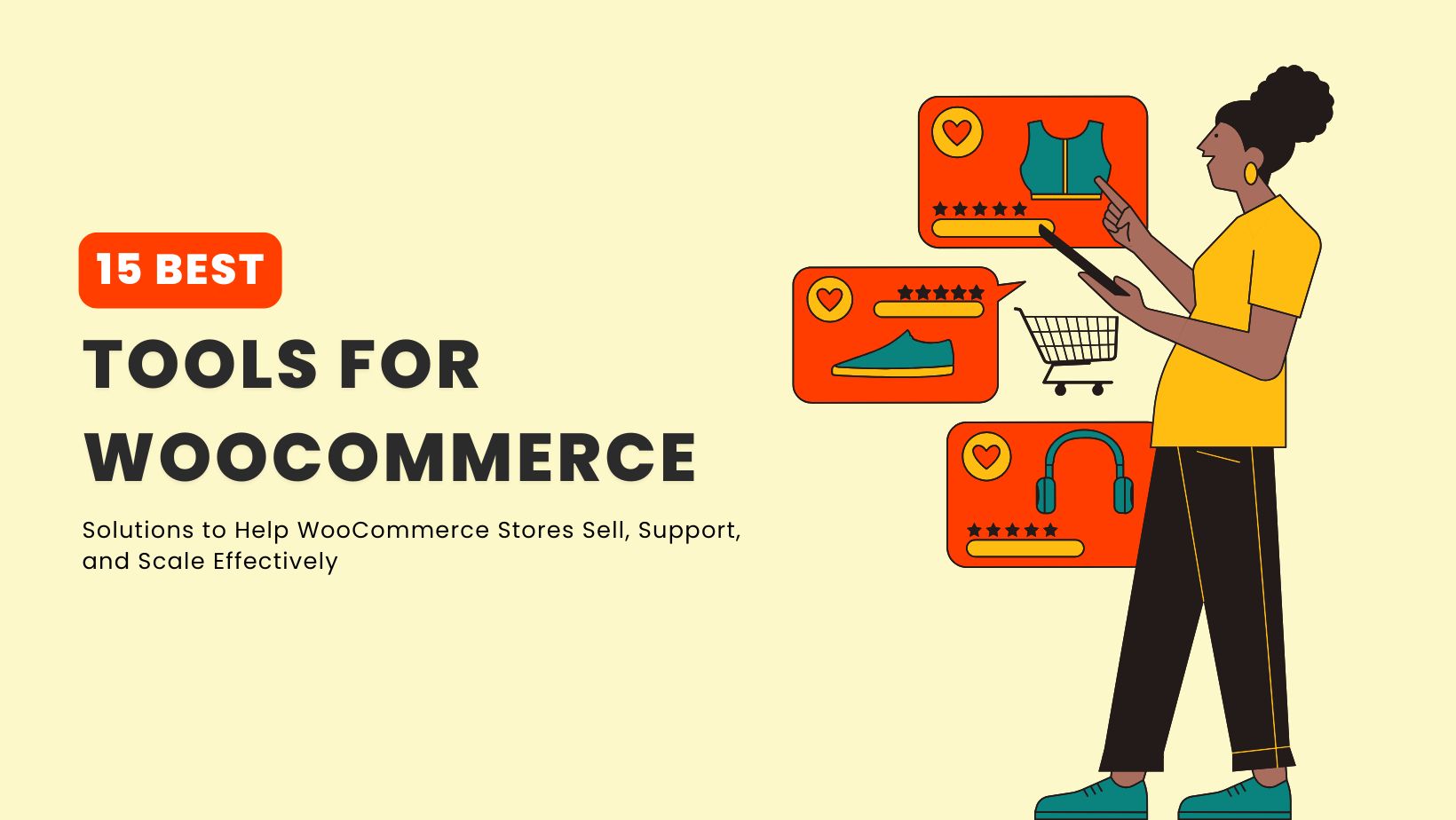
WooCommerce gives store owners flexibility, but that flexibility comes with trade-offs as a store grows. Over time, pages slow down as plugins accumulate, carts get abandoned without obvious reasons, and customer questions start consuming more time than expected. These issues rarely appear all at once, but they compound quickly and directly affect revenue. After working […]

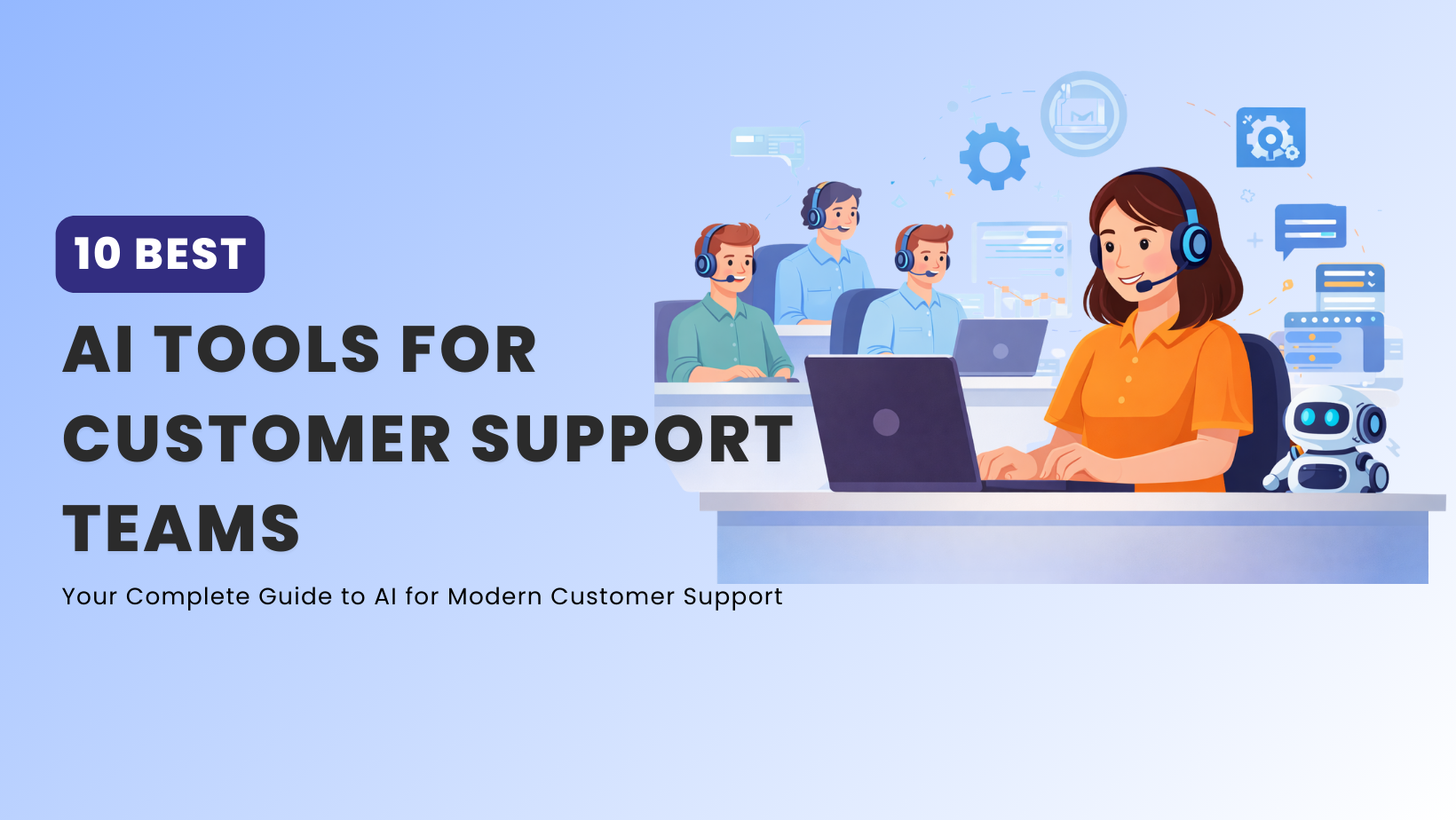
AI customer support tools now form a core part of how many teams handle growing contact volumes and rising customer expectations. At the same time, the market has become crowded, with many similar-looking products and overlapping claims, which makes evaluation harder for support leaders. The AI customer service segment grew from about $12 billion in […]


If you run an Instagram account for business in 2026, you already feel the pressure. The platform has 2 billion monthly users now. About 44% of people on Instagram shop every week, and most expect you to reply to their messages in under an hour. Between creating posts, Stories, and Reels, answering DMs, responding to […]

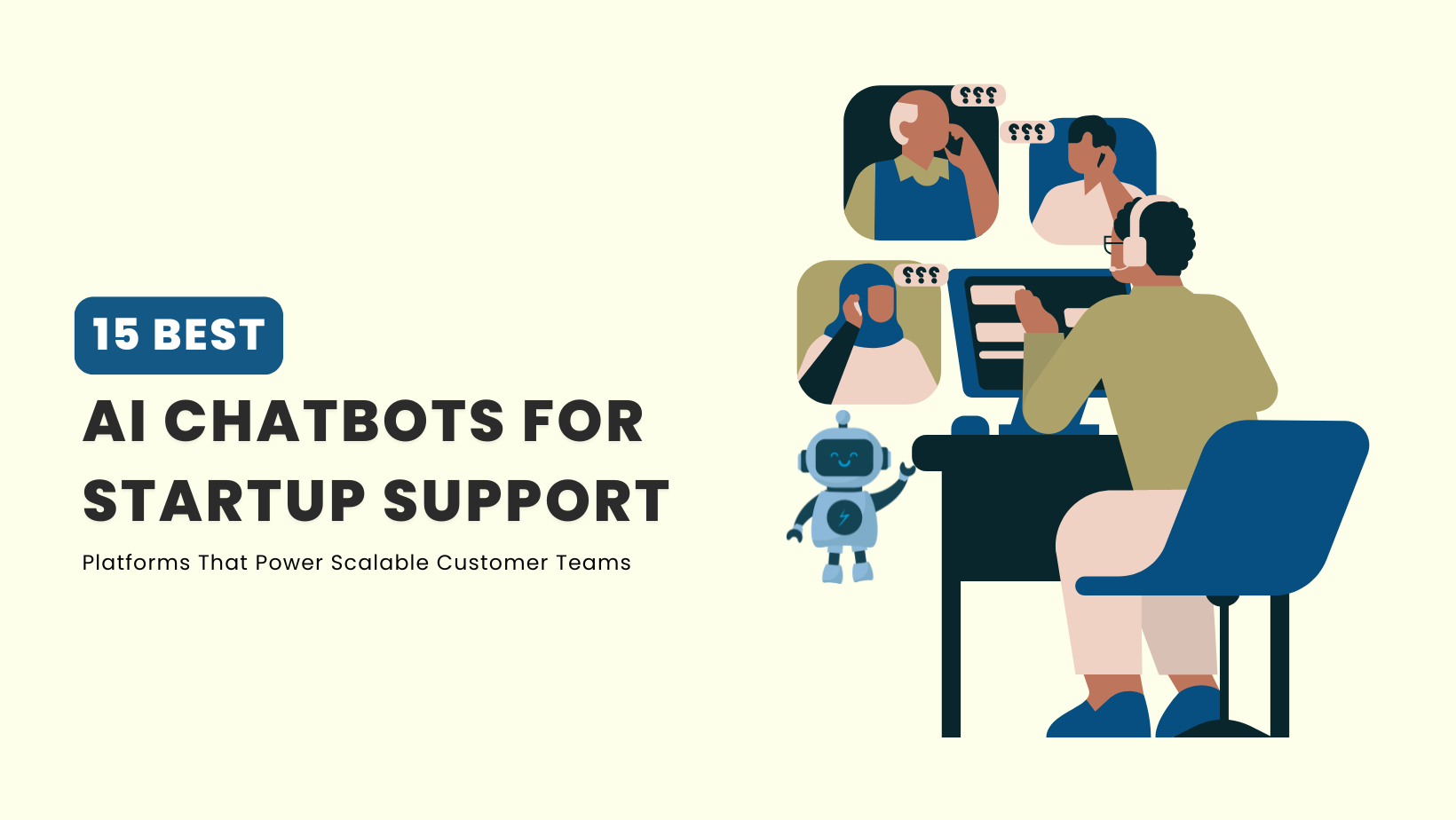
TL;DR Growing startups struggle with rising support volume and limited teams. AI chatbots automate repetitive queries, keep responses consistent, and scale support without extra headcount. Based on 48+ hours of our testing, we evaluated platforms across setup time, accuracy, AI capability, pricing transparency, and real-world performance for startups. AI chatbots help startups manage customer support […]
